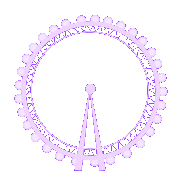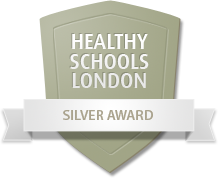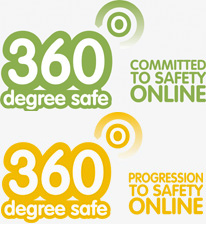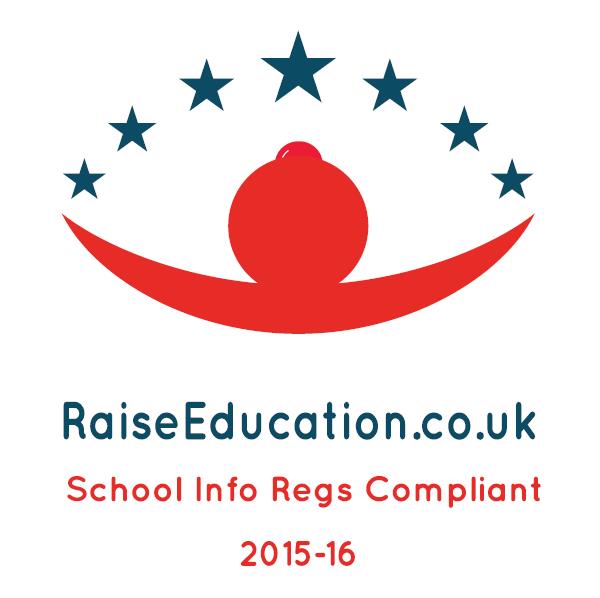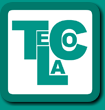Safeguarding and Child Protection Policy Addendum (COVID-19)
St Josephs Camberwell Catholic Schools Federation
COVID-19 Safeguarding (Child Protection) Policy Addendum
St Joseph’s camberwell catholic schools’ federation (sjccsf)
COVID-19 school closure arrangements for
Safeguarding and Child Protection
- 1. Context
From 20th March 2020 parents were asked to keep their children at home, wherever possible, and for schools to remain open only for those children of workers critical to the COVID-19 response - who absolutely need to attend.
Schools and all childcare providers were asked to provide care for a limited number of children - children who are vulnerable, and children whose parents are critical to the COVID-19 response and cannot be safely cared for at home.
This addendum of the SJCCSF Safeguarding (Child Protection) Policy contains details of our individual safeguarding arrangements in the following areas:
- 1. Context
- 2. Vulnerable children
- 3. Attendance monitoring
- 4. Designated and Deputy Safeguarding Leads in our school
- 5. Reporting a concern
- 6. Safeguarding training and induction
- 7. Safer recruitment/volunteers and movement of staff
- 8. Online safety in schools
- 9. Children and online safety away from school
- 10. Supporting children not in school
- 11. Supporting children in school
- 12. Peer on Peer Abuse
- 13. Support from the Local Authority
Key contacts in school
|
Role |
Name |
Contact number |
|
|
Designated Safeguarding Lead |
Delia Jameson |
0207 7033455 |
This email address is being protected from spambots. You need JavaScript enabled to view it. |
|
Deputy Designated Safeguarding Leads |
Teresa Mokogwu Joanna Ioannou Alison Grant Canning Karen Chys |
0207 703 3455
|
This email address is being protected from spambots. You need JavaScript enabled to view it. This email address is being protected from spambots. You need JavaScript enabled to view it. |
|
Chair of Governors |
Patsy Winters |
As above |
pwinters.stjosephs.southwark sch.uk |
|
Any other relevant contacts for individual schools |
N/A |
Vulnerable children
Vulnerable children include those who have a social worker and those children and young people up to the age of 25 with education, health and care (EHC) plans. Further information on vulnerable children can be found in Government’s guidance on vulnerable children and young people.
Those who have a social worker include children who have a Child Protection Plan and those who are looked after by the Local Authority. A child may also be deemed to be vulnerable if they have been assessed as being in need or otherwise meet the definition in section 17 of the Children Act 1989.
Those with an EHC plan will be risk-assessed in consultation with the Local Authority and parents, to decide whether they need to continue to be offered a school or college place in order to meet their needs, or whether they can safely have their needs met at home. This could include, if necessary, carers, therapists or clinicians visiting the home to provide any essential services. Many children and young people with EHC plans can safely remain at home.
Eligibility for free school meals in and of itself should not be the determining factor in assessing vulnerability.
Senior leaders, especially the Designated and Deputy Designated Safeguarding Leads know who our most vulnerable children are. They have the flexibility to offer a place to those on the edge of receiving children’s social care support.
SJCCSF will continue to work with and support children’s social workers to help protect vulnerable children. This includes working with and supporting children’s social workers and the local authority virtual school head (VSH) for looked-after and previously looked-after children. The lead person for this in school will be: Delia Jameson.
Each vulnerable child will be allocated to a member of the DSL team. In the absence of the allocated member of the DSL team, responsibility for contacting vulnerable pupils may be re-allocated to another DSL, escalated to the HT or a member of SLT, or delegated to the class teacher (under SLT/HT guidance).
DSLs will make phone contact with each allocated child on a regular basis to check their safety and wellbeing by speaking to child not just parent.
DSLs will record summary of conversation on online data system or an electronic version of school concern form which is then circulated to DSL team via email. Any unsuccessful contacts, as well as those that did take place will also be recorded. Any urgent safeguarding concerns will be escalated immediately, for example, through consultation with the Southwark Multi Agency Safeguarding Hub (MASH) duty (or its equivalent in another LA if the child resides in a different LA) and/or the police immediately.
There is an expectation that vulnerable children who have a social worker will attend an education setting, so long as they do not have underlying health conditions that put them at risk. In circumstances where a parent does not want to bring their child to an education setting, and their child is considered vulnerable, the social worker and SJCCSF will explore the reasons for this directly with the parent.
Where parents are concerned about the risk of the child contracting COVID19, SJCCSF or the social worker will talk through these anxieties with the parent/carer following the advice set out by Public Health England.
We will encourage our vulnerable children and young people to attend a school, including remotely if needed.
Attendance monitoring
Local authorities and education settings do not need to complete their usual day-to-day attendance processes to follow up on non-attendance.
SJCCSF and social workers will agree with parents/carers whether children in need should be attending school – we will then follow up on any pupil that was expected to attend, who does not. We will also follow up with any parent or carer who has arranged care for their child(ren) and the child(ren) subsequently do not attend.
HOW WILL THIS LOOK IN OUR SCHOOL?
To support the above, we will, when communicating with parents and carers, confirm emergency contact numbers are correct and ask for any additional emergency contact numbers where they are available. In all circumstances where a vulnerable child does not take up their place at school, or discontinues, we will notify their social worker.
Designated and Deputy Designated Safeguarding Leads in our school
The Designated Safeguarding Lead (DSL) is:
Delia Jameson
The Deputy Designated Safeguarding Leads (DDSL) are: Theresa Mokogwu, Joanna Ioannou, Alison Grant Canning and Karen Chys
The optimal scenario is to have a trained DSL or DDSL available on site. Where this is not the case, a trained DSL or DDSL will be available to be contacted via phone or online video - for example when working from home.
Where a trained DSL or DDSL is not on site, in addition to the above, a senior leader will assume responsibility for co-ordinating safeguarding on site.
This might include updating and managing access to school’s safeguarding data/information via school files and liaising with the offsite DSL/DDSL and as required liaising with children’s social workers where they require access to children in need and/or to carry out statutory assessments at the school.
It is important that all our staff and volunteers have access to a trained DSL or DDSL. On each day staff on site will be made aware of who that person is and how to speak to them.
The DSL and DDSLs will continue to engage with social workers and attend all multi-agency meetings, which can be done remotely.
Reporting a concern
Where members of staff have a concern about a child, they should continue to follow the process outlined in our school’s Safeguarding (Child Protection) Policy and share the concern with DSL or DDSL via email and telephone. Staff members are reminded of the need to report any concern immediately and without delay.
Where staff members are concerned about an adult working with children in the school, they should report the concern to the headteacher. If there is a requirement to make a notification to the headteacher whilst away from school, this should be done by email or phone.
Concerns around the Headteacher should be directed to the Chair of Governors: Patsy Winters
This email address is being protected from spambots. You need JavaScript enabled to view it..
Safeguarding training and induction
DSL training is very unlikely to take place whilst there remains a threat of the COVID 19 virus. For the period COVID-19 measures are in place, a DSL or DDSL who has been trained will continue to be classed as a trained DSL or DDSL even if they miss their refresher training.
All existing school staff have had safeguarding training and have read part 1 of Keeping children safe in education (KCSIE) (2019). The DSL will communicate with staff any new local arrangements so that they know what to do if they are worried about a child.
Where new members of staff are recruited, or new volunteers enter SJCCSF, they will continue to be provided with a safeguarding induction.
If staff are deployed from another education or children’s workforce setting to our school, we will take into account the DfE supplementary guidance on safeguarding children during the COVID-19 pandemic and will accept portability as long as the current employer confirms in writing that:-
- • the individual has been subject to an enhanced DBS and children’s barred list check
- • there are no known concerns about the individual’s suitability to work with children
- • there is no ongoing disciplinary investigation relating to that individual
Upon arrival, they will be given a copy of the receiving setting’s Safeguarding (Child Protection) Policy, confirmation of local processes and confirmation of DSL arrangements.
Safer recruitment/volunteers and movement of staff
It remains essential that people who are unsuitable are not allowed to enter the children’s workforce or gain access to children. When recruiting new staff, SJCCSF will continue to follow the relevant safer recruitment processes for their setting, including, as appropriate, relevant sections in part 3 of Keeping children safe in education (KCSIE).
In response to COVID-19, the Disclosure and Barring Service (DBS) has made changes to its guidance on standard and enhanced DBS ID checking to minimise the need for face-to-face contact.
Where we are utilising volunteers, we will continue to follow the checking and risk assessment process as set out in paragraphs 167 to 172 of KCSIE. Under no circumstances will a volunteer who has not been checked be left unsupervised or allowed to work in regulated activity.
We will continue to follow the legal duty to refer to the DBS anyone who has harmed or poses a risk of harm to a child or vulnerable adult. Full details can be found at paragraph 163 of KCSIE.
We will continue to consider and make referrals to the Teaching Regulation Agency (TRA) as per paragraph 166 of KCSIE and the TRA’s ‘Teacher misconduct advice for making a referral’. During the COVID-19 period all referrals will be made by emailing This email address is being protected from spambots. You need JavaScript enabled to view it..
Whilst acknowledging the challenge of the current National emergency, it is essential from a safeguarding perspective that any school is aware, on any given day, which staff/volunteers will be in the school or college, and that appropriate checks have been carried out, especially for anyone engaging in regulated activity. As such, we will continue to keep the single central record (SCR) up to date as outlined in paragraphs 148 to 156 in KCSIE.
Online safety in schools
We will continue to provide a safe environment for our pupils, including online. This includes the use of an online filtering system. Where pupils are using computers in school, appropriate supervision will be in place.
Children and online safety away from school
It is important that all staff members who interact with children, including online, continue to look out for signs a child may be at risk. Any such concerns should be dealt with as per our Safeguarding (Child Protection) Policy and where appropriate referrals should still be made to Southwark MASH (or its equivalent in another LA if the child resides in a different LA) and/or the police immediately.
Online teaching should follow the same principles as set out in our school’s code of conduct. We will ensure any use of online learning tools and systems is in line with privacy and data protection/GDPR requirements.
Below are some things to consider when delivering virtual lessons, especially where webcams are involved:
- No one to one sessions, teach in groups only
- Teachers should be in a neutral area where nothing personal or inappropriate can be seen or heard in the background.
- Staff and children must wear suitable clothing, as should anyone else in the household.
- Any computers used should be in appropriate areas, for example, not in bedrooms; and where possible be against a neutral background.
- The live class should be recorded and backed up elsewhere, so that if any issues were to arise, the video can be reviewed.
- Live classes should be kept to a reasonable length of time, or the streaming may prevent the family ‘getting on’ with their day
- Language must be professional and appropriate, including any family members in the background
- Schools should risk assess the use of live learning using webcams
- Data Controllers need to reassure themselves that any teaching/learning software and/or platforms are suitable for the age groups and raise no privacy issues; or use cases against the providers terms and conditions (for example, no business use of consumer products).
Supporting children not in school
SJCCSF is committed to ensuring the safety and wellbeing of all its children and young people. Where the DSL has identified a child to be on the edge of social care support, or who would normally receive pastoral-type support in school, we will ensure that a robust communication plan is in place for that child or young person. Details of this plan will be recorded appropriately as will a record of contact.
The communication plans can include; remote contact, phone contact, door-step visits. Other SJCCSF and our DSL will work closely with all stakeholders to maximise the effectiveness of any communication plan. This plan will be reviewed regularly (at least once a fortnight) and where concerns arise, the DSL will consider any referrals as appropriate.
The school will share safeguarding messages on its website and social media pages.
We recognise that school is a protective factor for children and young people and the current circumstances can affect the mental health of pupils and their parents/carers. Teachers at our school need to be aware of this in setting expectations of pupils’ work where they are at home.
We will ensure that, where we care for children of critical workers and vulnerable children on site, the appropriate support is in place for them. This will be bespoke to each child and will be recorded appropriately.
Supporting children in school
SJCCSF is committed to ensuring the safety and wellbeing of all its pupils. We will continue to be a safe space for all children to attend and flourish. The Headteacher will ensure that appropriate staff are on site and staff to pupil ratio numbers are appropriate, to maximise safety. We will refer to the Government guidance for education and childcare settings on how to implement social distancing and continue to follow the advice from Public Health England on handwashing and other measures to limit the risk of spread of COVID19. We will ensure that, where we care for children of critical workers and vulnerable children on site, the appropriate support is in place for them. This will be bespoke to each child and recorded appropriately.
Peer on Peer Abuse
SJCCSF recognises that during the closure a revised process may be required for managing any report of such abuse and supporting victims. Where we receive a report of peer on peer abuse, we will follow the principles as set out in part 5 of KCSIE and those outlined within our Safeguarding (Child Protection) Policy.
The school will listen and work with the young person, parents/carers and any relevant multiagency partner to ensure the safety and security of that young person. Concerns and actions will be recorded appropriately and appropriate referrals will be made.
Support from the Local Authority
The LADO: Eva Simcock 020 7525 0689
Duty telephone number for enquiries/referrals when LADO is unavailable: 020 7525 3297
The LA’s Strategic Lead Officer for safeguarding in education services: the Director of Education Nina Dohel 020 7525 3252
The LA’s Schools Safeguarding Coordinator: Apo ÇAĞIRICI 020 7525 2715
Southwark MASH Duty: 020 7525 1921
Southwark Family Early Help Service Duty: 0207 525 1922
We also note the attached list of suggestions from Southwark LA about the arrangements for identification of, and planning for, vulnerable pupils during school closure:











